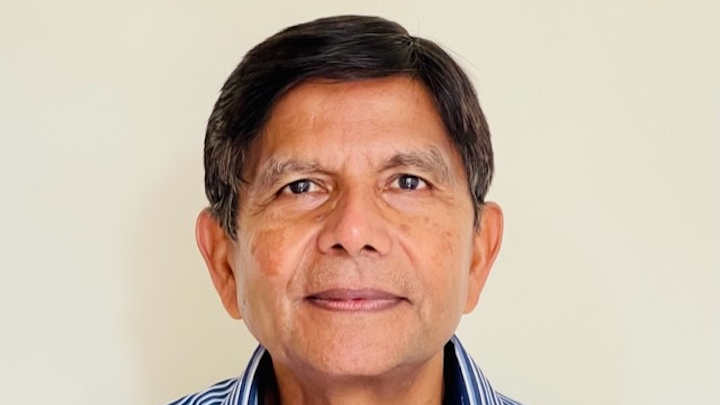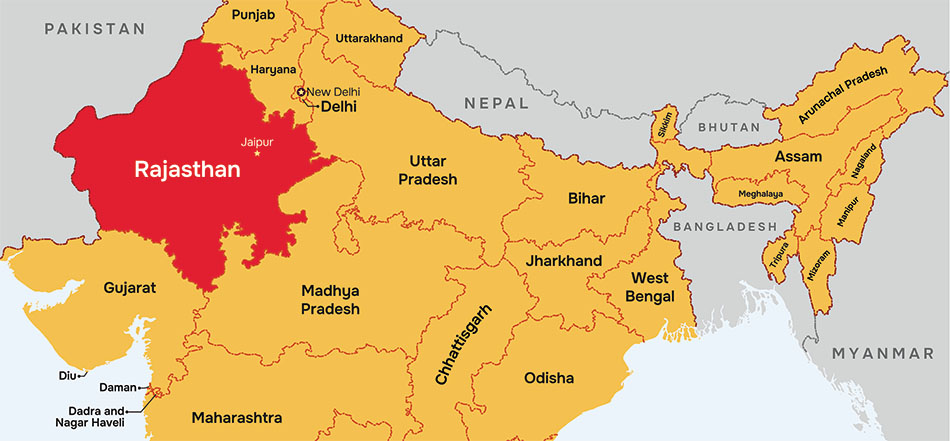Improving mental health diagnosis through standardised assessment
Over one billion people worldwide live with a mental health condition. Methods for assessing mental health and making a diagnosis can vary between healthcare settings, with few options for rapid, day-to-day standardised assessments in clinical settings. A low-cost digital mental health tool developed by a Manchester researcher is helping detect mental health issues earlier, making it easier for more people around the world to get treatment.
Mental health conditions are among the leading causes of disability globally, and impose high costs on households, employers and economies. While many such conditions can be effectively treated at relatively low cost, many health systems are significantly under-resourced, resulting in significant detection, care and treatment gaps. An available and effective low-cost standardised tool for rapid everyday use in different settings could make diagnosing mental health problems easier.
Work on the Global Mental Health Assessment Tool (GMHAT) began in the 1990s, when Professor Vimal Sharma and colleagues in the NHS realised that mental health assessments carried out in primary and specialist care settings varied in quality.
“The ultimate objective is to bring mental health to mainstream health, and to reach out to as many people around the world as possible.”
Professor Vimal Sharma
More than 20 areas are covered by GMHAT, including anxiety and depression, eating disorders, other neurotic disorders like obsessive compulsive disorder, phobias, psychotic disorders, dementia and organic disorders, and personality disorders, as well as substance misuse and post-traumatic stress disorder. Attention deficit hyperactivity disorder and autistic spectrum disorder are also included.
Originally, two versions of the tool were developed: one for use in primary care by trained health workers, GPs, nurses and other health professionals (GMHAT/PC), and a full version (GMHAT - Full) for secondary care, enabling specialist doctors, nurses and psychiatrists to make comprehensive assessments.
GMHAT/PC is a computer-assisted clinical assessment tool consisting of a set of questions developed to identify potential mental health disorders. Assessments take up to 20 minutes to complete, making them ideal for health professionals with a busy caseload. The questions cover a range of areas, and if no issues are identified in one particular area, the tool moves on to the next section. GMHAT/PC has been validated against ICD-10 diagnosis in a number of field studies.
One of the advantages of the Full version of GMHAT is the range of factors it considers (holistic assessment) when making a diagnosis. The Full version has been further advanced by Professor Sharma and his colleagues at the Centre for Autism and Neuro-developmental Disorders (CANDIDD) to be used in learning disability services (GMHAT - Full/ID).

Professor Vimal Sharma
Vimal is Professor of Global Mental Health Research at The University of Manchester, and Consultant Psychiatrist at Cheshire and Wirral Partnership NHS Foundation Trust.
"GMHAT gives a clinical diagnosis that reaches a clinical threshold level. So, for instance, if you have anxiety and depression, and they are both significant, then it captures both," Professor Sharma explains. "Whereas in clinical practice, we tend to focus on just one diagnosis.
"I wanted to see how detection of mental disorders could be done at primary care level as it would be easy to manage - meaning that they don't end up at the severe end of mental health disorders if they remain untreated."
GMHAT training
Guided by Professor Sharma, a team from CANDIDD at Cheshire and Wirral Partnership NHS Foundation Trust has developed a standardised training package lasting two to three days.
The training package aims to provide knowledge about mental disorders and interviewing and communication skills and competencies in making a professional judgement when identifying mental health symptoms. The sessions in the training programme are interactive using videos and roleplaying exercises.
Global demand
Once the tool was made available to frontline health workers, it became obvious that there was a significant demand from other countries for GMHAT/PC to be offered in different languages. The tool was first translated into Spanish, followed by Asian languages including Hindi, Marathi, Kannada, and Tamil. Other translations included Dutch, German, Welsh, Cantonese and Mandarin.
In 2016, a collaboration between the Home Office, Public Health England and the UN's International Organization for Migration (IOM) piloted the tool with 200 Syrian refugees at a clinic in Beirut, Lebanon. The refugees had been approved for resettlement to the UK, and the pilot suggested that mental health assessments could help UK local authorities to prepare for new refugee arrivals, as well as provide important information to GPs for their initial consultations.
Following the pilot, the Home Office and the IOM initiated the rollout of assessments using GMHAT/PC for UK-bound refugees. The first set of training in GMHAT/PC has been successfully carried out in Kenya, Jordan and Pakistan. Additionally, GMHAT/PC training is routinely provided in Colombia (Spanish version) and in India for health workers at different organisations.

The future
The team are also considering the possibility of empowering individuals to carry out self-assessments so that they can approach the relevant services for help, which could be particularly useful in rural regions where there is little access to mental health services. A project funded by the Indian Council of Medical Research in a remote part of Rajasthan has suggested that this could be useful.
In addition to GMHAT's clinical uses, researchers may increasingly turn to GMHAT for epidemiological projects, enabling the tool to contribute to mental health research. The tool is already being used for training purposes in medical teaching at RHUS College of Medical Sciences, Jaipur, and could be rolled out to other medical schools to provide mental health training to future medics.
"The ultimate objective is to bring mental health to mainstream health, and to reach out to as many people around the world as possible," Professor Sharma says.
Key publication
- Mental health and public health: improving mental health and wellbeing of communities in the modern world: a pragmatic approach using the Global Mental Health Assessment Tool/PC (University of Manchester Research Explorer)

Case study: Piloting GMHAT in Rajasthan, India
India has only 0.75 psychiatrists per 100,000 people, below WHO recommendations. This means 70 to 92% of people with mental disorders do not receive proper care. In comparison, there is approximately one psychiatrist for every 20,000 people in the UK.
While there is widespread need across the estimated Indian population of approximately 1.467 billion people, there are particular workers and regions that are at increased risk of developing mental health conditions. These include people working in sectors under chronic stress, and the north-western state of Rajasthan, which has a severe shortage of mental health professionals.
Recognising its own limited mental health infrastructure while being aware of the potential of a low-resource tool, the Rajasthan Border Security Force (BSF) has piloted GMHAT to improve the early detection of high-risk individuals.
Increasing suicide rates among BSF personnel and their families stationed along the Rajasthan border - particularly near the India-Pakistan frontier - were a concerning issue for the leadership of the BSF workforce of over 250,000 people.
Following its success, the BSF integrated GMHAT into its annual health checks, ensuring that a mental health screening is now routinely conducted. This allows timely support to be offered to personnel identified as needing mental health care.
Similarly, the Rajasthan Police Academy, which oversees one of India's largest state police forces with over 100,000 personnel, faced rising concerns over police suicides. In response, the Academy adopted GMHAT as part of its general health assessments and trained personnel in its use. The tool has proven effective in identifying officers in high-stress roles who may benefit from mental health support, enabling earlier intervention and reducing the risk of crisis escalation.
The GMHAT tool is now being adapted for web and mobile platforms so that it can become part of both organisations' digital health systems and rolled out across India.
Learn more about global health research at Manchester.
